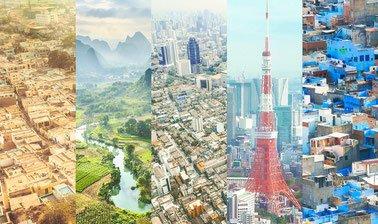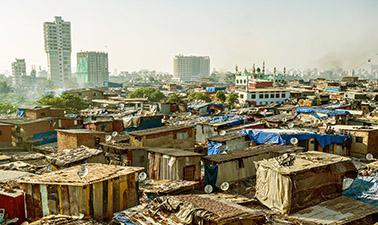Howard Davis
Professor Howard Davis researches the social frameworks within which buildings are built as a path to the improvement of the built world as a whole. Through design studios, lecture courses, and seminars that examine architectural contexts of culture and place, with a focus on the social and cultural sustainability of cities and urban districts, his students view architecture as strongly anchored in the world of people and society.
Professor Davis is the author of The Culture of Building (Oxford University Press, 1999, 2006), which describes how buildings and cities are produced not only by architects, but by a coordinated system that also includes builders, clients, materials suppliers, bankers, developers and many others. The improvement of the built world depends on positive changes to this production system. The book’s topics range from vernacular architecture around the world to building history in London and New York to contemporary initiatives in design and building.
Howard Davis’s current work on sustainable cities deals with the relationships between urban morphology, building typology and the emergence of new forms of the urban economy. The first stage of this research was published in the book Living Over the Store: Architecture and Local Urban Life, a cross-cultural, historical and contemporary account of buildings that combine commercial and residential uses. With research in Guangzhou, China, London and Portland, Davis is asking the question “How can the physical form of cities accommodate the economic needs of low-income groups, and of people engaged in contemporary, regenerative businesses, in ways that are sustainable?” This work is giving students the opportunity to research critical topics in contemporary urbanism in international as well as North American contexts, and is leading to a new book manuscript, Makers in Cities: The Architecture of Urban Production. The work is being done under the umbrella of a new organization, the Collaborative for Inclusive Urbanism.
Before coming to the University of Oregon, Davis worked with Christopher Alexander and the Center for Environmental Structure, and he is a co-author of The Production of Houses. He has worked on settlement planning and housing in Mexico and India, with an emphasis on participatory design and construction techniques. Davis is a frequent consultant with Rowell Brokaw Architects in Eugene, and has established, with faculty colleague John Rowell, a research practicum program through which graduate students can be involved with research that is of direct interest to architecture firms.
Davis has taught at the University of California, Edinburgh University, the Universidad Autonoma de Baja California and the School of Planning and Architecture in New Delhi. He has spoken at numerous conferences and universities around the world, and serves on the editorial board of Buildings & Landscapes (of which he is founding co-editor), and the Traditional Dwellings and Settlements Review.
The Culture of Building was named “Best Work in Architecture and Urban Studies” by the Association of American Publishers in 2000. Howard Davis was named Distinguished Professor of the Association of Collegiate Schools of Architecture in 2009, and received the University of Oregon's Thomas F. Herman Award for Distinguished Teaching in 2011.
Howard Davis welcomes inquiries from potential graduate students at the M.Arch., M.S. and Ph.D. level.
More info here.



